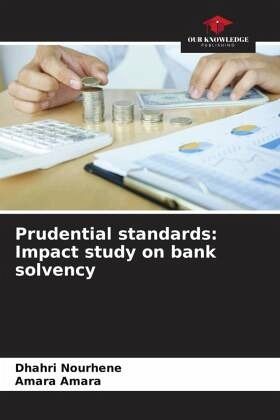
Prudential standards: Impact study on bank solvency
Versandkostenfrei!
Versandfertig in 6-10 Tagen
29,99 €
inkl. MwSt.

PAYBACK Punkte
15 °P sammeln!
The evolution of the banking regulatory environment over the last few years has raised many questions as to the effectiveness of prudential measures and the relevance of the legal apparatus in this new landscape. The Cooke ratio, replaced in 2003 by the McDonough ratio, has since become an international reference for banks. Banks that are less risky and that respect prudential standards are solvent. Thus, with their compliance with prudential standards, Tunisian commercial banks are relatively safe from risk. From a sample of 10 commercial banks between 2007 and 2015, we studied the impact of ...
The evolution of the banking regulatory environment over the last few years has raised many questions as to the effectiveness of prudential measures and the relevance of the legal apparatus in this new landscape. The Cooke ratio, replaced in 2003 by the McDonough ratio, has since become an international reference for banks. Banks that are less risky and that respect prudential standards are solvent. Thus, with their compliance with prudential standards, Tunisian commercial banks are relatively safe from risk. From a sample of 10 commercial banks between 2007 and 2015, we studied the impact of compliance with prudential standards on the solvency of the banking institution. To do this, we based our work on the studies of Kefi and Maraghni (2011). Indeed, we performed estimations on panel data, these results show that the liquidity ratio, interest rate risk ratio and ROA have positive and significant effects on the risk coverage ratio.












